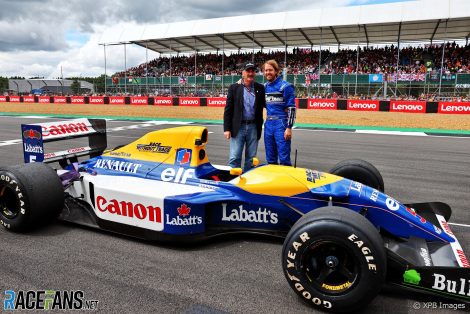Formula 2 and Formula 3 will serve as the testing ground for Formula 1’s switch to sustainable fuel in 2026.
From next year, Aramco will provide the junior series with an evolving sustainable fuel mix, from bio-ethanol to purely synthetic. This will pave the way for F1 to go fully sustainable when its new engine regulations are introduced in 2026.
From then F1 teams must use 100% sustainable fuel, made either from genuine waste and non-feedstock bio produce or from synthetic processes that construct petrol molecules. In the run up to this, Saudi Aramco will become fuel supplier to F2 and F3, introducing first bio-ethanol-derived non-fossil petrols and then fully synthetic fuel.
Both types of non-fossil petrol are permitted in the 2026 F1 regulations. Bioethanol-derived sustainable fuels are currently easier to make in bulk and are already used by some FIA series, like the World Endurance Championships. Unlike the 10% ethanol introduced to F1’s fuel mix this year, the fuel is a complete petrol, the ethanol having been changed by being catalysed to take on more hydrogen.
The most sustainable form of synthetic petrol is created by capturing carbon from the air as CO2, then combining it with hydrogen through electrolysis of water powered by renewable energy. The process then builds the hydrogen and carbon into a fuel that can be refined into petrol.
The reason why F2 and F3 were selected was explained by F1 technical director Pat Symonds earlier this year. “Formula 2 and Formula 3 use a single type of engine, they use a single type of fuel,” he said. “So we’ve got to do the job once. And, to be honest, it doesn’t have to be perfect.”
F2 and F3 cars currently use LMS 102 RON unleaded petrol supplied by Elf. Formula 2 technical director Didier Perrin said this specification will be matched by the 2023 fuel, which will introduce a 55% sustainable mix.
Aramco’s development programme for F2 and F3 will see it first use a bio-ethanol derived ‘drop-in’ petrol for the initial 55% sustainable mix. Along with the 45% fossil fuel-refined petrol, this will be an unleaded petrol that matches the current formulation.
“We intend to have drop-in fuel to use the existing engine for 2023 and complete the same formulation for 2024,” explained Pierre Calendini, Aramco’s Fuel Research Centre director.
Advert | Become a RaceFans supporter and
Calendini said the intention is to gradually…
Click Here to Read the Full Original Article at RaceFans…

